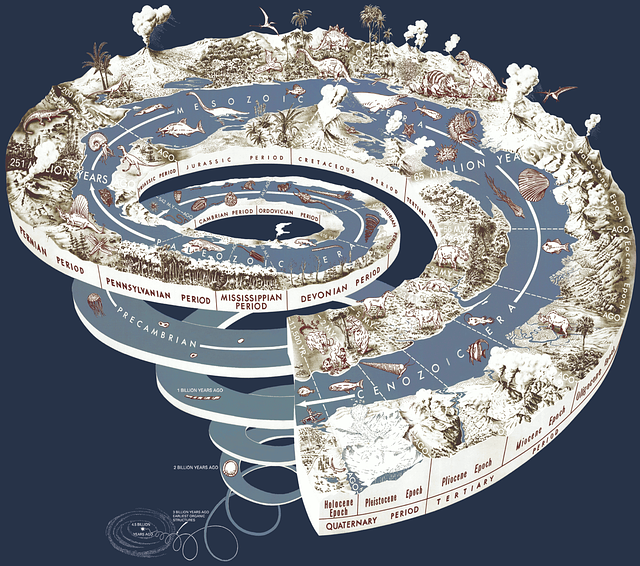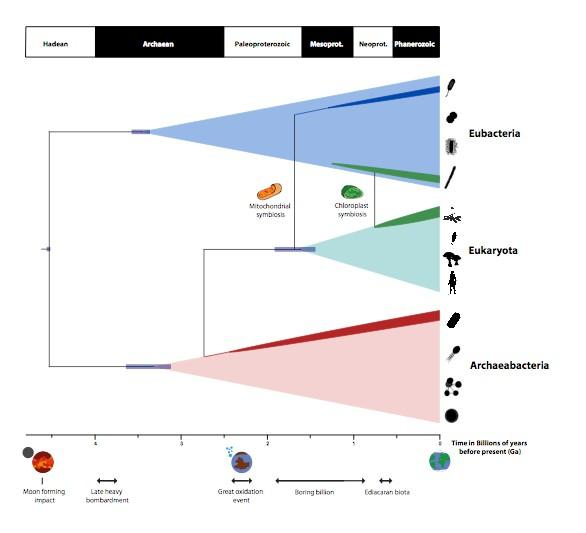
The advanced creature of the blue planet, humans know how the earth was created, how the universe was formed and three possible ways that could cause the collapse of the universe. But, the scientists have not yet been able to answer one question and that is exactly how and when all forms of life have evolved on earth. However, now the new timescale has given an insight into this mystery.
Earlier, the scientists used to rely on the fossil findings to find out the evolution mystery. But the palaeontologists are quite aware that such fossil recordings are increasingly hard to find the history of the first life on earth.
The scientists face difficulties to study the rocks due to the Earth's rock recycling system that causes the destruction of older rocks through weathering processes and the remains were recycled into new rocks. Such rocks often don't contain any biological remains. Similar challenges are included while studying fossils, as most of the times the palaeontologists face issues while linking the fossil to any known specific group of modern organisms.
Holly Betts, the lead author of the new study said, "There are few fossils from the Archaean and they generally cannot be unambiguously assigned to the lineages we are familiar with, like the blue-green algae or the salt-loving archaebacteria that colour salt-marshes pink all around the world."
"The problem with the early fossil record of life is that it is so limited and difficult to interpret – careful reanalysis of the some of the very oldest fossils has shown them to be crystals, not fossils at all," he further added.
In a new study, entitled with "Integrated genomic and fossil evidence illuminates life's early evolution and eukaryote origin" was published in the Nature Ecology & Evolution, the researchers from the Universities of Bristol and Bath in the UK have constructed a new timescale to know exactly how and when life first arose on the blue planet.
This study included the wealth of genetic data, which they can find in the present living organisms. They also used the molecular clock, which is a method to decipher the past by reading the details of the present organism's genetics. The researchers said that this method works on the basis that the differences in the genomes of two living species, such as human and a bacteria.
They accumulate the data in a manner that is roughly proportional to the time since they had a common ancestor. But, in this research, the fossils were used as a guide to link the events in real time that will find the common ancestors. At the same time, the scientists used the molecular clock to update the estimated time structure.
The study included molecular data of 29 genes that were collected from 102 living organisms, which have direct links to the tree of life, nine fossils for calibration, single-celled microorganisms or archaea, multi-celled organisms or eukaryotes and bacteria.

As per the scientist, the new timescale has shown that eukaryotes (plants and animals) are relative latecomers to the party, appearing roughly 1.8 billion years ago and other two members of the tree of life, bacteria and archaea, were diverged about 3.5 billion years ago.
The scientists also estimated that the Last Universal Common Ancestor (LUCA), which is a hypothetical single cell that all life on Earth is derived from, used to live on earth around 4.5-billion-years-ago.
So now, the scientists believe that the original ancestor of all life on earth was likely born around 3.9-billion-years-ago or about 100-million-years earlier than previously estimated.








